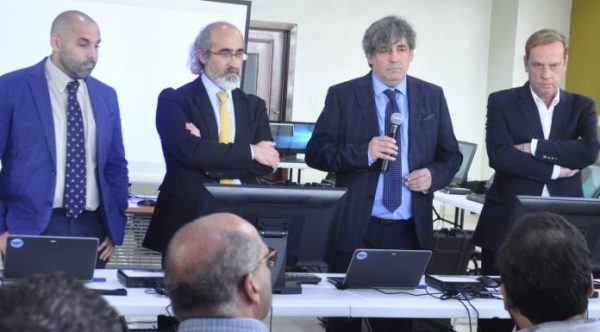
During a press conference held on Friday, 31 January 2020, information technology (IT) experts for Alhambra-Eidos, the international auditing firm, said the forensic audit carried out to the software used in the sample of 390 voting machines during the 6 October 2019 primaries proved it secure, with a robust tolerance, viable and fast operating. The audit analyzed traffic and outside communication with the machines. It determined no malicious virus or malware was affecting the operation of the devices.
“There have not been alterations from the point of view of the malicious code,” said the company during the press conference. The company experts say that the equipment does what it has been said to do, and nothing more. The government spent US$500,000 for the forensic audit.
The audit was called after former President Leonel Fernandez alleged there had been fraud in the 6 October 2020 primary. Fernández went on to resign from the ruling Dominican Liberation Party (PLD) after his leading contender in the primary, Gonzalo Castillo, was announced the winner of the PLD presidential nomination.
Miguel Angel García, IT director for the Central Electoral Board (JCE) said that after receiving the recommendations from Alhambra Eidos and the experts from the International Foundation for Electoral Systems (IFES) a new software version was installed with nine levels of security. García said that all data is encrypted for transmission.
As part of new measures to reduce fraud in the 2020 general elections, the JCE announced the voting stations will be limited to the 600 voters registered for these, and a digital fingerprint reader has been added.
Follow the story in Spanish:
Vimeo JCE
Domiplay La Cuestion
Hoy
N Digital
Diario Libre
3 February 2020

